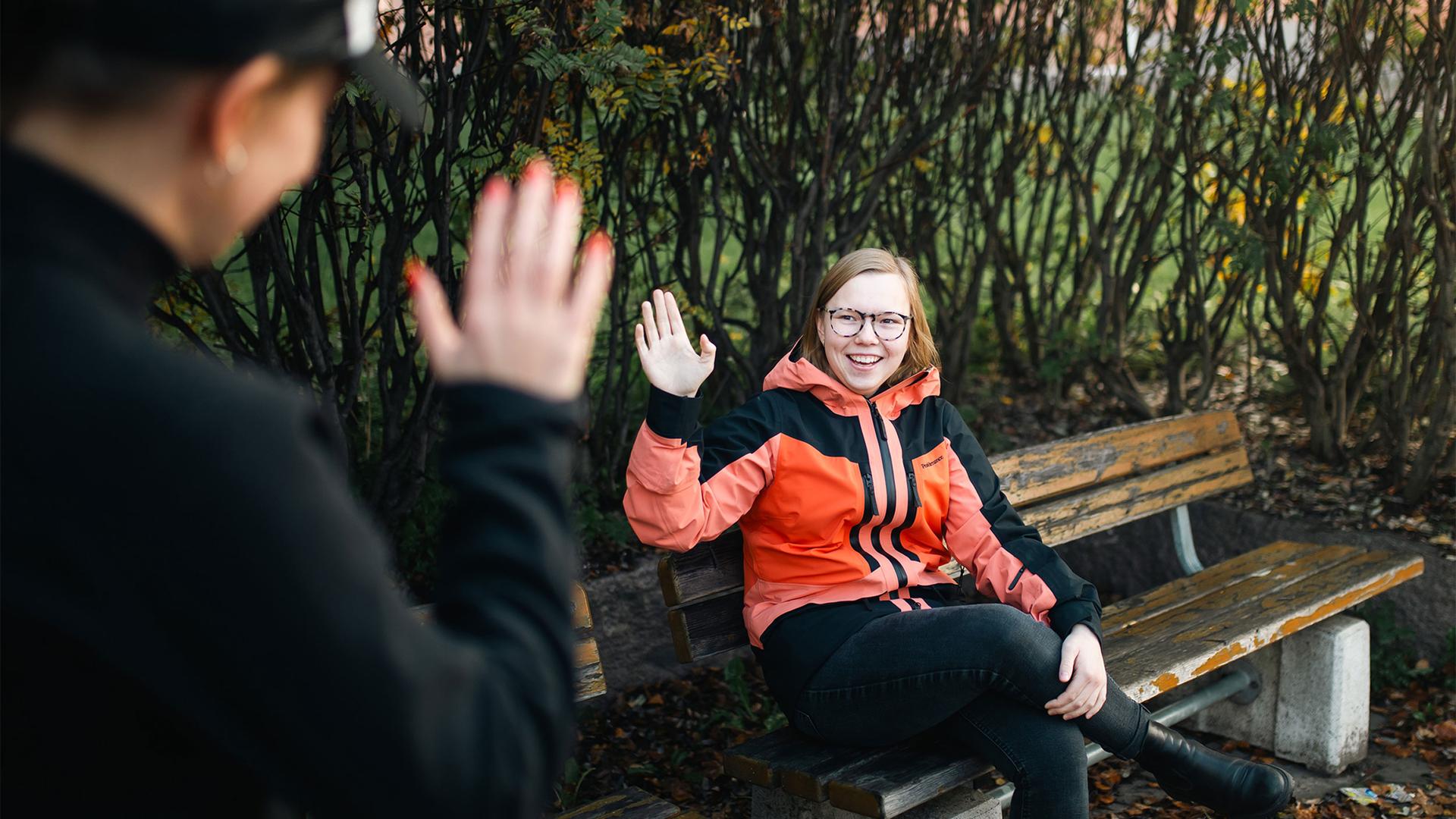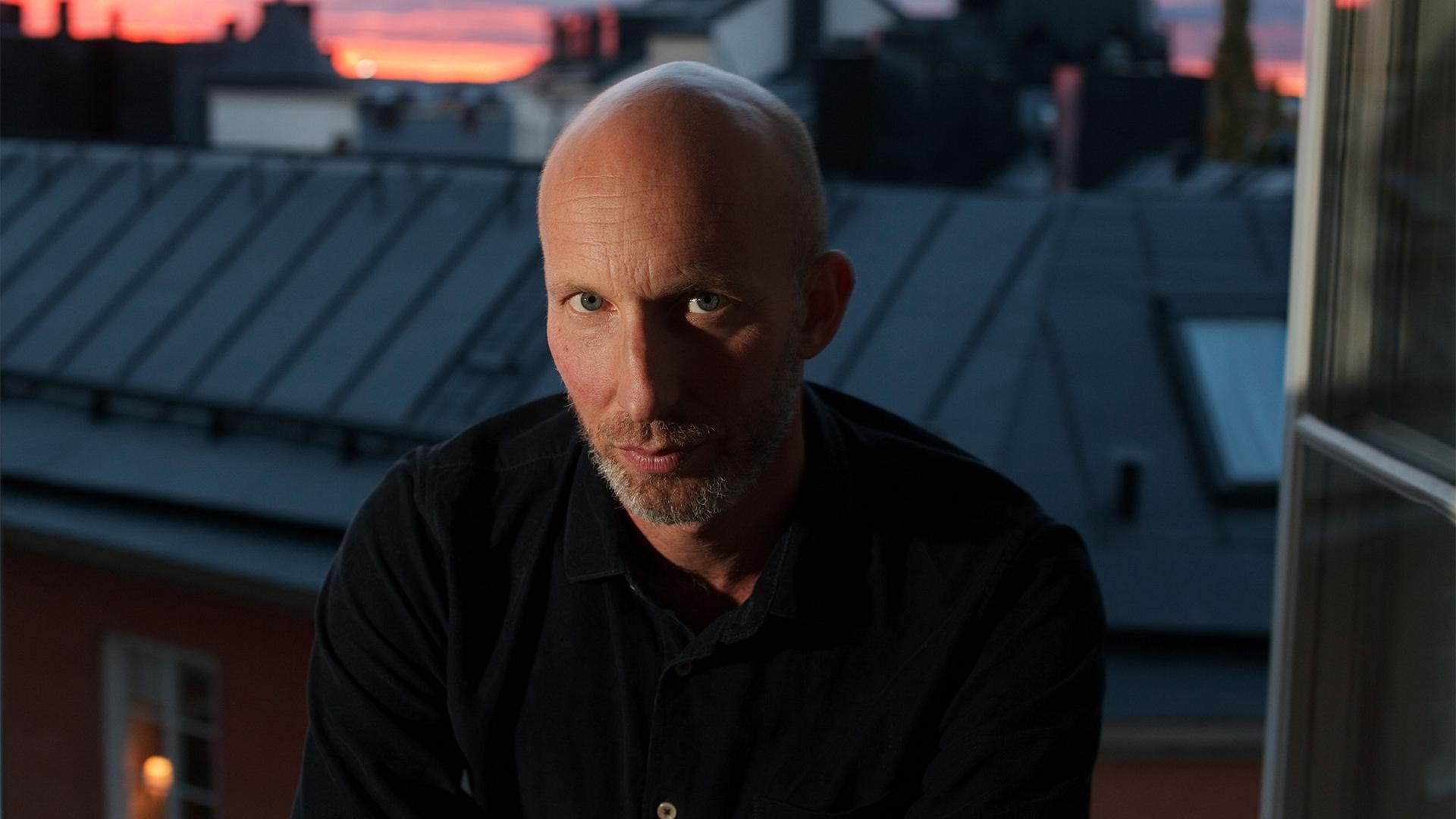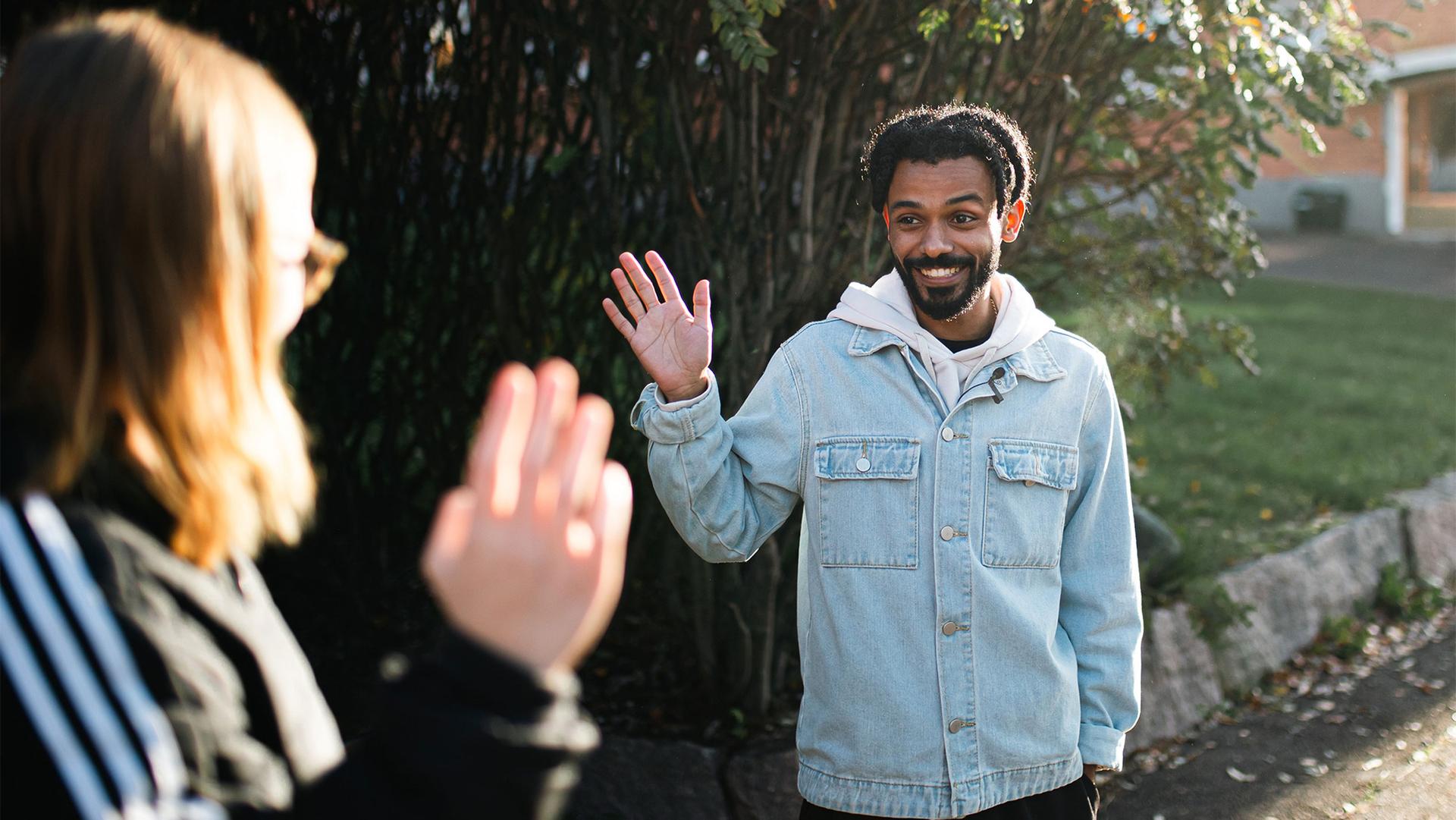Loneliness can be as bad for your health as smoking 15 cigarettes a day, according to an international commission launched by the World Health Organization this month.
Saying hello to a stranger may not seem like that big of a deal. But Åsa Koski, a social strategist with the Luleå municipality in northern Sweden, believes its impact could be greater than one might think.
She started the Säg hej! (“Say hi!”) campaign in Luleå to try and get people to interact more with each other to combat widespread loneliness.

Luleå is a coastal city located around 93 miles south of the Arctic Circle. Winters there are long and cold and the average temperature can drop to 5 degrees Fahrenheit.
But Koski, doesn’t think the weather alone is to blame for the isolation that many Swedes reportedly feel.
Recent research by Sweden’s public health agency found that a third of 16-29-year-olds say they experience problems caused by loneliness.
Koski thinks the continual urbanization of the town and an ever-growing dependence on digital technology are far bigger factors than the long dark winters.
Currently, Luleå has a population of around 80,000, but the number is expected to grow to close to 100,000 by 2040 as new industries move to the region.
Koski said she wants to foster a greater sense of community spirit before the town expands even further. The Säg hej! campaign includes advertisements on buses and workshops in schools encouraging people to say hello to each other.
Koski said the stereotype about Swedes not willingly engaging in small talk is probably true. “Kallprat” is the Swedish word for small talk, which literally translates as cold talk. “But we’re warm once you get to know us,” she laughed.
California-born Lauren Ell is familiar with the Swedish reticence to engage in friendly banter with a stranger but she thinks it’s a generational thing. Ell first moved to Sweden as a foreign exchange student in 2006. Making friends with Swedish students was almost impossible, she said.
Like Koski, Ell thinks digital technology is part of the problem.

“Even back in 2006 gaming was really big and I remember a lot of my classmates would just go home and play video games all evening.” Today, everyone is stuck on their phones, she said. Ell, who now lives in Skaulo, a small Swedish town north of Luleå, said she knows things aren’t that different in the US. But she said Swedes appear to have a natural tendency to keep to themselves or just mingle within their own social circles, and that makes it even harder for foreigners to integrate into the community.
“A long time ago, this country really embraced the idea of personal autonomy and independence.”
Swedish Italian filmmaker Erik Gandini believes other factors may be driving the problem of loneliness in Sweden.
“A long time ago, this country really embraced the idea of personal autonomy and independence,” he said.
Gandini was born and raised in Italy to a Swedish mother and Italian father. When he moved to Stockholm at the age of 20 he was struck by the number of people in their late teens already living alone.
In 2021, Sweden recorded the lowest average age of young people leaving the parental home across the European Union — at 19 years. In Italy, the average age is closer to 30. Sweden also has one of the highest shares of one-person households in the world.
Gunnar Andersson, professor of demography at Stockholm University said Sweden’s “culture of individualism” dates back centuries, with teenagers in rural communities typically leaving home to go and work on another farm. The strong welfare state allows young adults to live independently without the support of their parents. In 1972, the Swedish government launched a manifesto called ”The family in the future.”
Its motto, Gandini said, was that no adult should depend on anyone else and that everyone could be completely independent.

It’s very different from the traditional Italian family structure that Gandini grew up in and in 2015 he made a documentary about the Swedish system called The Swedish Theory of Love. The film got a mixed response in Sweden.
Gandini said it touched a nerve.
“The idea is so strong in Sweden of making sure that you never need anybody else, it’s become something sacred here. Swedish people don’t like to see that criticized or questioned,” he said.
Gandini believes it’s a double-edged sword. The government changes in the 1970s led to greater female emancipation and pushed Sweden toward becoming a more modern society, he said, but that has left people more prone to isolation and loneliness.

She never intended to live in the Nordic country long term, but 10 years ago, Ell fell in love with a Swedish man and moved to his hometown of Skaulo.
In the last couple of years Ell, who now has two small children, set about trying to get to know her community better. She began organizing events to bring local residents together. Many of the activities the town used to run have disappeared as the organizers have retired or passed away. But Ell finds that just getting people to show up is not easy.
It’s demoralizing, she said, when people don’t bother to come. “I’ve been here in Skaulo for 10 years now, and I still feel very much like an outsider.”
Ell, who’s 35, said she finds it harder to connect with Swedes who are her own age and younger. Many of her best conversations are with older neighbors in their 60s and 70s, she said.
“They tend to chat more, and they often talk about the old days when it was a bit more active here, a bit more social.”
During the winter, the town of Skaulo gets even less daylight than Luleå. For two months of the year, you sometimes only see a little light on the horizon at dawn and dusk, Lauren Ell said. But like Åsa Koski, she doesn’t think the dark winters are to blame for the rates of loneliness among the young in Sweden. Luleå’s ‘Säg hej!’ campaign is a good start to try and tackle the issue, she said.
Teachers in Luleå have reported that the campaign is already having an effect. Koski said students are now challenging each other to see how many “hi’s” they can get in a day. A teacher told Koski that one student, who usually spends most of his time alone, admitted he was buoyed up when other students began to say “hi” to him.
The campaign is set to run for only four weeks but Koski said the attention it has attracted globally is an indication of how badly initiatives like this are needed.
“It seems like a superficial connection between strangers, but research has shown that these bonds are more important than we imagined,” Koski said.
It’s not only close friendships that matter. “Saying hello to someone sends out a message that maybe you’re more eager to help if there’s a problem or you’re happy to stop and chat.” For some people, that can really count for something, she said.
